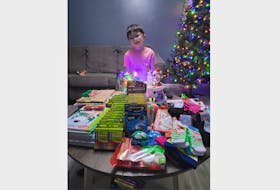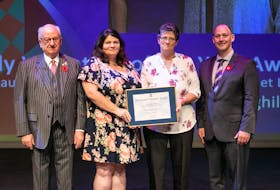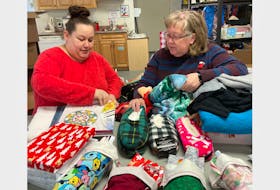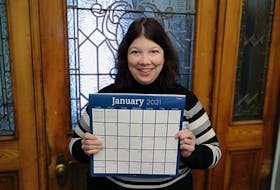Careers, savings, and lifestyles turned upside down for many amid COVID-19.
And while no one could have prepared for a pandemic, it highlighted why a rainy day or emergency fund is crucial for unplanned expenses like job loss, medical costs, unexpected bills, or home repairs.
Blaire MacNeil, the senior manager at Grant Thornton Limited in Halifax, NS says there are many ways to save money without making significant life changes.
Still, sometimes the first step can be the most challenging part.
"Building savings can be an exercise on getting to know your personality. For some, multiple savings accounts are a great way to keep the money in a separate space and see it grow. Others may prefer to purchase gift cards to track spending. And some have a physical 'piggy bank' to see the money grow," he explains.
"The biggest thing is determining your control, ability, and comfort level when accessing your savings funds."
Change of any kind is never easy but planting the seed and building from there - while balancing income and expenses - will make a difference later, says MacNeil.
"Savings is not so much a magic number as it is a well-constructed budget that allows you to put money aside. Being able to put $20 away is just as good as being able to put $200 away if that is what your household can afford," MacNeil said.
"People will say three months of expenses is a good amount, but as we saw in 2020, there is no way to anticipate what might be on the horizon. The main thing is ensuring the amount you can put away is sustainable, works for your household, and is used for what your household deems an emergency. The big thing to remember is that every cent put away helps."
The 50/20/30 budgeting rule, popularized by senator Elizabeth Warren, is one all-star method to keep spending in alignment.
In this method, 50 per cent of income (after taxation) goes towards essentials such as food, shelter, utilities, healthcare, and transportation costs. The next 20 per cent is for savings or debt repayment and the final 30 per cent is for non-essential items.
Holiday debt

Krista Walsh, founder of the first and only woman-owned collection agency in Atlantic Canada called KC Collect!, adds some tips for tackling the holiday debt hangover.
"Most people do not see the effects of their spending until their credit card statements arrive in January. I suggest picking up little presents throughout the year for your friends or family to avoid hefty bills or spending right before the holidays," said Walsh, a multifaceted young entrepreneur, author, and speaker with businesses spanning from debt collection to fitness.
Budgeting, spending cuts on non-essential items, or even a side-hustle, are short-term sacrifices that can lead to more financial freedom.
"Whether it is stuff you sell online and get extra money for, income tax return, or taking the recyclables back, having these bonus savings in an account will add up through the year," said Walsh.
Starting 2021 right
Starting the year off with a tangible financial goal is the first step of taking stock of the situation, says Walsh.
"A written plan is a necessary step in preparing your finances for the future. A lack of necessary budgeting skills is one of the major reasons people overspend and eventually become bankrupt."
MacNeil added, "Debt can happen to anyone, anywhere. If you need help with debt, do not be afraid to reach out and ask a professional. There can be many solutions for dealing with difficult finances, and the professionals are there to help."
Planning on what to spend for the day, week, or month will help track spending habits and gain self-control, said Walsh.
"Stick to the essentials. Think before you make your purchases. Try to keep your spending minimal while you weather the storm," Walsh said.
"Even though you are trying to dig yourself out (of debt), try to make more than your minimum payments. You will never shovel yourself out of the snowbank of debt if you opt only to make the smallest payment."
Financial resolutions
When it comes to New Year's resolutions, 2021 should be one to remedy vulnerabilities and reach new money milestones, says Gary MacNeil of Himmelman and Associates Financial Advisors Inc., in Halifax.
"You often read that people should set aside three months' income for a rainy day. We (financial advisors) agree with this statement but adding 'access' to six months' income is helpful."
Access, he says, includes a day-to-day banking account, tax-free savings account (TFSA), Registered Retirement Savings Plan (RRSP), equity in a home, or a credit line, he explained.
"Opening a TFSA with automatic deposits from your chequing or savings is a fantastic tool to save money. Soon you will not see the money missing from regular spending habits while growing a tax-free account for a rainy day."
Typically, in January and February, he reviews what his clients have saved in their TFSA and looks at moving any excess into an RRSP to generate a tax refund.
"This money saved in their RRSP can be used for the purchase of their first home, going back to school, or for their retirement, if they are already homeowners or have their education," he said, while acknowledging there is no better time than to start saving money today.
"Make it automated. A simple way to put money aside is by setting up regular payments into the TFSA. Whether it is bi-weekly or monthly, re-visit (with your financial advisor) this account quarterly to see what works or can be improved. Funds in the account can be re-allocated to lower debt or used to increase RRSP savings."
A debt-free life is doable, say these experts, for anyone willing to put in the time and effort.









